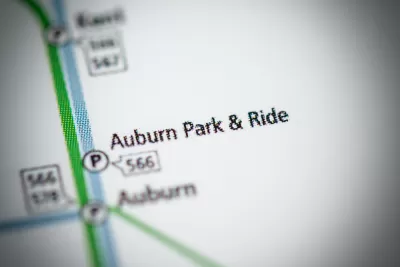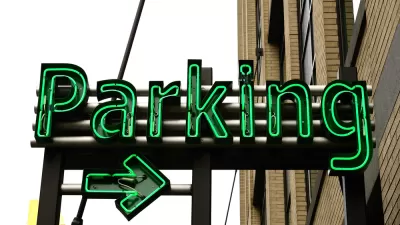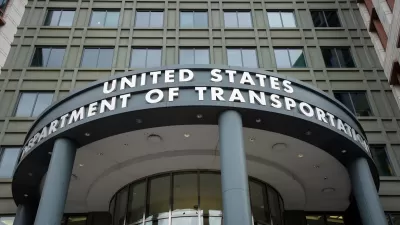Faced with the expensive costs of adding park and ride facilities along its expanding transit system, transportation planners in the Seattle region wonder if it's money well spent.

Lizz Giordano reports from the Puget Sound region, where commuters, transit agencies, and elected officials are caught in a dilemma about how much parking access to provide around light rail, train, and bus lines. "Some of the discussion also revolves around questions about land use and whether to focus more attention on creating density around transit centers, rather than forcing the public to pay for parking spots," according to Giordano.
Giordano's selects the Mountlake Terrace park and ride as a case study of the dilemma of parking capacity. "A 2009 rebuild nearly tripled the parking capacity at the park and ride, which is owned by Snohomish County’s Community Transit," according to Giordano. "But now, the garage is again bursting at the seams."
The cost of providing parking is soaring—the under-construction Kent parking and ride facility will spend $100,000 on each stall. Critics call that an expensive subsidy for only about a third of transit users in the region. Some cities have begun looking for other first-last mile solutions—Seattle, for instance discourages new parking facilities near facilities. But still, Sound Transit 3 will add 10,000 new parking spaces, estimated to cost nearly $700 million.
FULL STORY: As Puget Sound region grows, park and rides fill up

Maui's Vacation Rental Debate Turns Ugly
Verbal attacks, misinformation campaigns and fistfights plague a high-stakes debate to convert thousands of vacation rentals into long-term housing.

Planetizen Federal Action Tracker
A weekly monitor of how Trump’s orders and actions are impacting planners and planning in America.

In Urban Planning, AI Prompting Could be the New Design Thinking
Creativity has long been key to great urban design. What if we see AI as our new creative partner?

King County Supportive Housing Program Offers Hope for Unhoused Residents
The county is taking a ‘Housing First’ approach that prioritizes getting people into housing, then offering wraparound supportive services.

Researchers Use AI to Get Clearer Picture of US Housing
Analysts are using artificial intelligence to supercharge their research by allowing them to comb through data faster. Though these AI tools can be error prone, they save time and housing researchers are optimistic about the future.

Making Shared Micromobility More Inclusive
Cities and shared mobility system operators can do more to include people with disabilities in planning and operations, per a new report.
Urban Design for Planners 1: Software Tools
This six-course series explores essential urban design concepts using open source software and equips planners with the tools they need to participate fully in the urban design process.
Planning for Universal Design
Learn the tools for implementing Universal Design in planning regulations.
planning NEXT
Appalachian Highlands Housing Partners
Mpact (founded as Rail~Volution)
City of Camden Redevelopment Agency
City of Astoria
City of Portland
City of Laramie





























